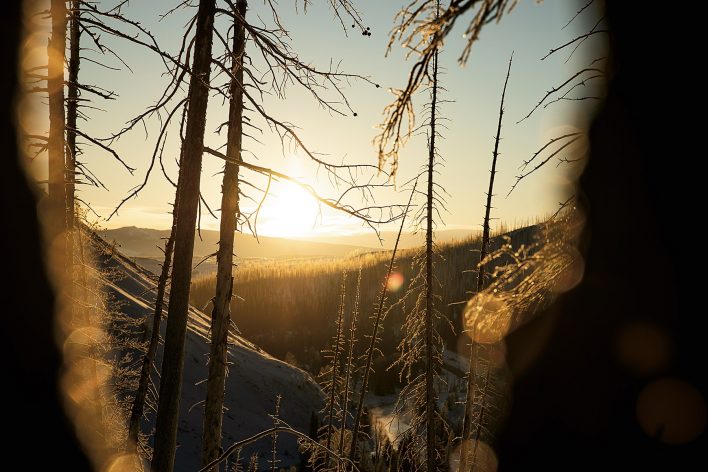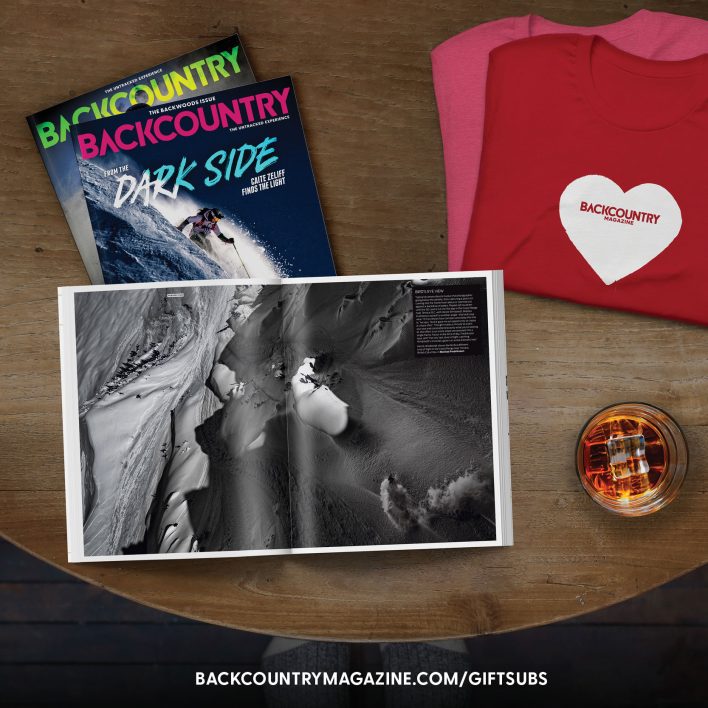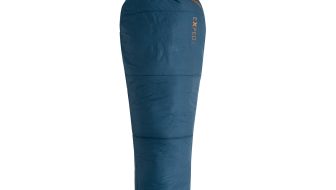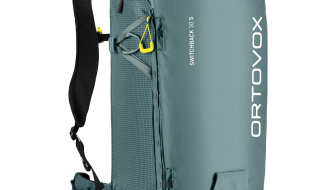
Dawn always brings the transition from the crunch of a well-worn skintrack to a grippy, gloppy glide much too quickly. Just when I’ve found my rhythm in the snap of the cold, the sun peeks over the horizon. The pace picks up.
But this day was different. I didn’t race the sun the way I normally would. My legs slogged heavily; my breathing felt restricted. My fitness had changed overnight, psychosomatic: My mother lay, incapacitated, in a hospital bed three states away. Covid restrictions meant I was powerless to help or visit, even if I had been in the same town. Sleep-deprived, heart-torn, I did the only thing I knew how to do and went touring as scheduled. Maybe this simple action would soothe my soul.
When I made plans with Sophia and Cal weeks earlier, conditions were markedly different. Wyoming’s Tetons had flipped from pounding powder cycles to bluebird dry spells. The towering ochre-stained walls of Wyoming granite would protect our northeast-facing line high in Grand Teton National Park. Fresh powder could be waiting. Likelier, though, we’d find refrozen crud that wouldn’t corn up. Good: I needed a challenge to get me out of my head.
I love not just the push to be in high places but also the steep skiing down. The in-between spaces, los espacios siderales, is where I do my best breathing, if not thinking. It was a gift to ski with hosts like Sophia and Cal, who knew these places better than me, a guest in these mountains.
In all that planning, I didn’t anticipate my mother’s hospitalization, a complication of questionable medical treatment for her progressive multiple sclerosis. During a season marred by losses in the snow community and a historically sketchy snowpack in my home base of southwest Colorado, I had looked forward to this day as a physical and mental release. I longed to defragment my hard drive, as one of my mentors often says.
But my hardware—my body—wouldn’t reboot. From deep within, fatigue gripped every muscle. I wanted to hide, to cry myself back to sleep. “I’m just grateful to get out of bed today,” I told Sophia and Cal within our first mile. “I’m going to be real: Just checking in with myself, I’m not sure if I have it in me. My head isn’t where it needs to be.”
I silently mourned as I pushed the words from my lips. I wanted so badly to take advantage of this cocoon of good friends, safe snow and a committing line. But happiness felt inaccessible, my focus distant as we slowly progressed through Garnet Canyon. My friends smiled gently.
“I get it,” Sophia replied as Cal nodded. “But I’m here to spend time with you, not just ski this couloir. I can ski any day I want, but I don’t get to see you any day I want. Let’s just see where we go.”
For the next several hours, we wove through refrozen tracks, conversation lifting us through thawing evergreens. Sophia and Cal broached topics others would have avoided: social injustice, housing inequity, finding ski partners during a pandemic and the cliquiness of ski communities. The potential that I’d lose my mom floated through the conversation. They remained supportive as we took turns leading in the skinner. It felt good to move, even if we’d have to change the mission.
We emerged above tree line just as the early morning sun showed his face, and the scratchy skintrack disappeared. Above us, on the apron, we skinned up steep refrozen crust, adding crampons. Eventually, I strapped skis to my pack and put in a booter. Apathy fell away with each resolute kick. By the time we reached the last pitch below the col, I stopped beating myself up. The ego that drove me upward to the notch in the granite wall subsided: This was a moment for self-compassion. If my head wasn’t in the game, I wouldn’t have the focus I needed for the line. “Stay accountable to self,” I remembered. “This is your life, as much as theirs.”
I glanced to the notch in the summit, where the sun barely peeked into a surely icy couloir. Behind and below me, untracked snow flanked our skintrack and bootpack, the sun winking off perfectly corned snow. I breathed deeply as I sank my boot a few more times into the snow, a wave of relief washing over me as I eddied out from ambition poking me into guilt.
I don’t recall who said it, but the words rang out: “Stop at the rock and assess?” Cal, Sophia and I gathered, faces shining into the sun. Everything is a choice. And we chose, in that moment, to surf the sunny slopes back to our cars. We chose the path of least resistance. Unpressured, unhurried, we made a call that felt friendly and fun.
When we want to do the tough things—whether that means dropping into an exposed line or sending into a complex, nuanced conversation, our heads must be in the game. You choose: humility or hubris?
Dani Reyes-Acosta is an athlete and storyteller exploring the human experience—and how we build community with others on the planet.
This article was originally published in Issue #143. To read more, pick up your copy at BackcountryMagazine.com/143 or subscribe.










Related posts: